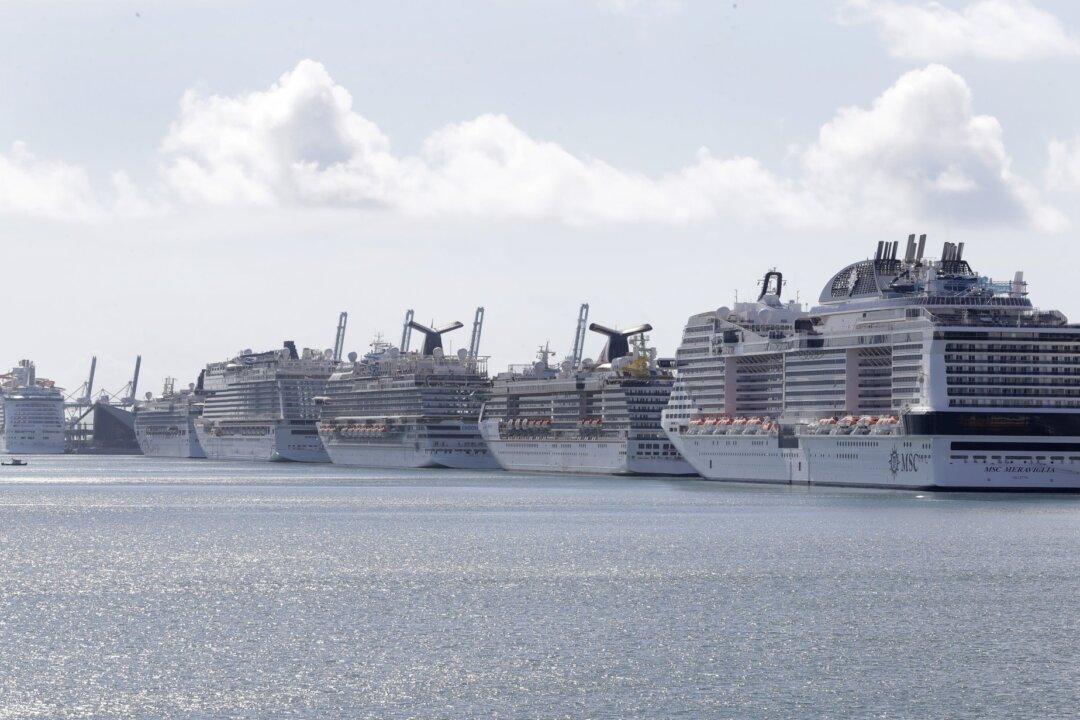FORT LAUDERDALE, Fla.—The U.S. Coast Guard has directed all cruise ships to remain at sea where they may be sequestered “indefinitely” during the CCP virus pandemic and be prepared to send any severely ill passengers to the countries where the vessels are registered.
For most of the South Florida’s cruise ships, that means the Bahamas, where people are still recovering from last year’s hurricanes.





